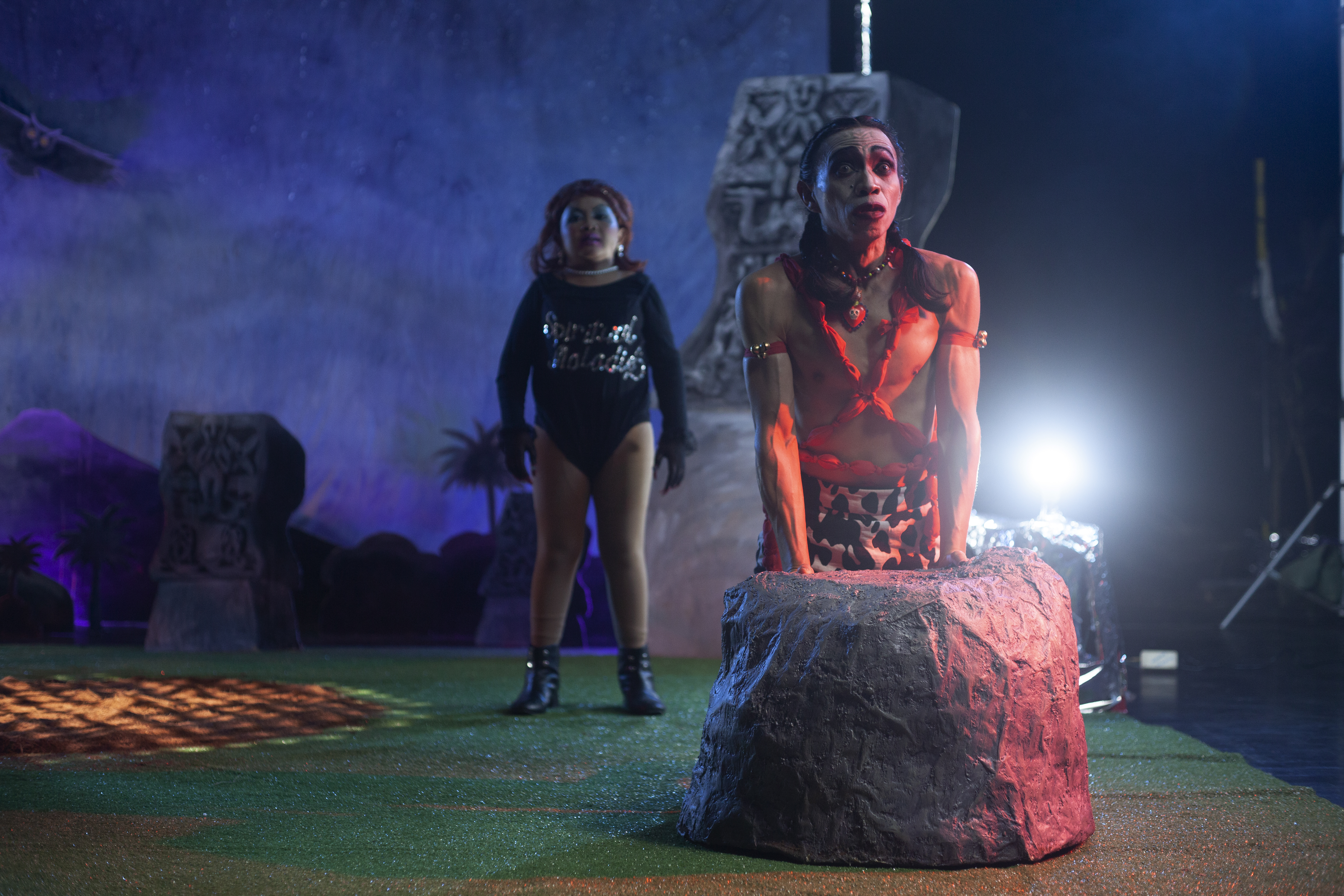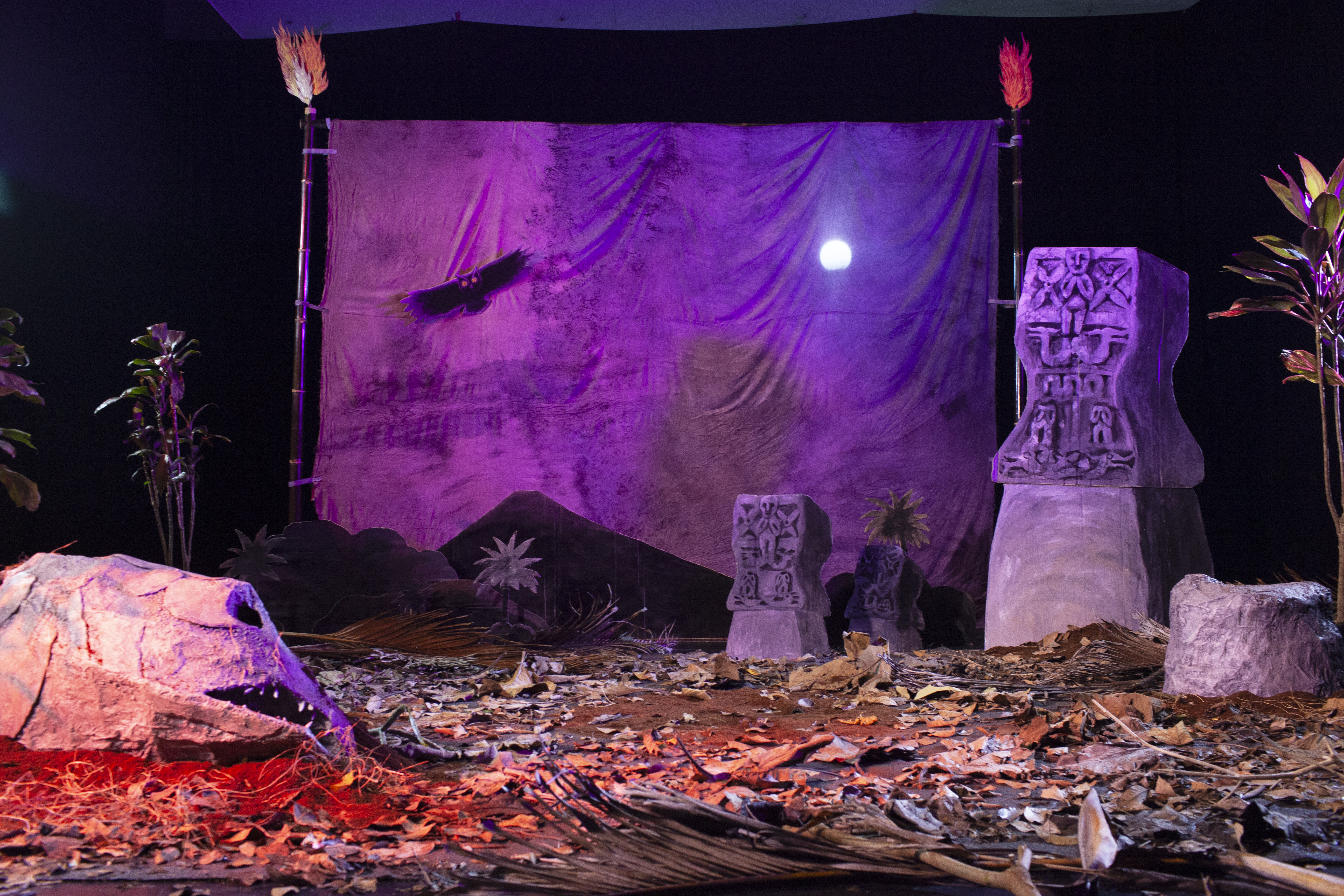


Natasha Tontey’s speculative fictional stories, Of Other Tomorrows Never Known, are about complex caring works entwined with an urgent need to talk with ancestors. They focus on spirits and how to renew relationships with them – spiritually, materially and technologically. In this work, caring is always entangled with the need to regain long-overdue respect for Indigenous principles, values and beliefs. However, built-in features of our lives are structured around histories of inclusion, exclusion and normality. Acknowledging the existence of multiple worlds accepts the risk of appearing illogical or incomprehensible. Tontey encourages us to embrace this illogical aspect of caring, which expresses a willingness to take further steps to let go of our dependence on established institutions to tell us what is primitive, modern, irrational and rational.
Emerging from her own background and personal history, Tontey took part in various rituals by communities from Minahasa in Northern Sulawesi, Indonesia. These rituals offered insights into their approach to technology, as the Indigenous communities now also discuss artificial intelligence in their cultural assemblies. Makatana, the landowner or supreme cosmic being who rules the land, belongs to the Minahasan cosmology. Makatana includes the creation of vernacular mechanisms to manage the land. Embedded in these mechanisms is the principle of paying equal respect to human and nonhuman entities who inhabit the land. In everyday practices, Makatana requires trans-generational dialogues, understanding and cooperation. It is the spirit, collective principles, and technologies for life.
Within the Indonesian context, where the structuring of neoliberalism and development are deeply embedded in and regulated by the contemporary social fabric, we inevitably come face to face with numerous spirits. The afterlife of colonialism continues to haunt us, lurking in colonial storage at various institutions. Then all of a sudden, they ambush us, the true keepers of stories and resources. These former colonial institutions insist on a singular dominant timeline. They narrate stories about us, but only the kinds of stories they want to hear. Various social and political violence has brought about trans-generational traumas. With their extractive logic, new oligarchs and corrupt statesmen emerged as new (but familiar) ugly monsters. Local politicians and people in general search high and low for spirits of the past, hoping to latch onto a splatter of power and wisdom. It demonstrates the usefulness of the spirits in real politics and daily life. These spirits act like advisors with guidance and recommendations for the next steps. Often they interject advice with sharp criticism of whatever wrongdoings have happened in the past or present.
But how do we talk with the spirits? While performing Makatana, Tontey threads stories from mythology, archaeological ruins, and urban cultures. Her performances and stories form a specific technology and rely on intuition, practising shifting perspectives and accommodating multiple timelines. What is at stake in going back to the ancestral roots is an awareness to provide room for gaps. Such gaps might resemble inaccuracies. They also allow opportunities to create unfiltered dialogues, albeit dreamy (including with oneself), about fear, dystopia, and other maladies. The spirits come in all forms: hybrid beasts, new behemoths, a superior cosmic being who can travel across time, in undocumented ritual objects, or as vampires. They might be perceived as aliens, but at once, they feel familiar. We sense points of reverberation with them. In this work, Of Other Tomorrows Never Known, the spirit acts as a healer. In different ways, they represent attempts to cross boundaries. In turn, this allows ample room for absurdities and speculation. Their paths lead to uncertainties and chaos, which all beings must face. Questions remain: How do we stay human? And how can we build trans-species alliances? In the process, moments of healing temporarily break through.
Nuraini Juliastuti, 2023.